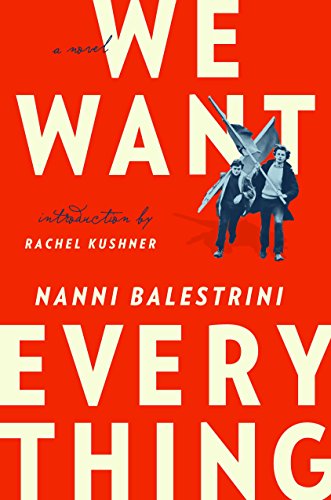We Want Everything
Like the protests that took place in Paris in May 1968, the protests of Autumn 1969 in Italy transformed the country, thanks to workers and students alike who demanded changes in the punishing work environment of the factories. Nanni Balestrini, a contemporary of Umberto Eco, first released We Want Everything—vogliamo tutto—in 1971, in the wake of the protests that, as this book explains, had its roots in the workers from the impoverished south of Italy—Naples and area—who migrated to the factories of Fiat in the north. The work was stultifying, and the pay couldn’t cover their basic living expenses, forcing some to sleep in the local train station. In Balestrini’s novel, the unnamed narrator, who comes from the south, has had enough frustration from a system that privileges, rich landowners, northerners, and the bourgeoisie at the expense of laborers like his family and of workers like the ones he meets working for Fiat.
This is a book of ideas, of the clash between the exploited proletariat and factory-owning bourgeoisie. Fans of the book are legendary: Umberto Eco, Hari Kunzru, Rachel Kushner. It is not a novel, however, with characters you care about. The unnamed narrator learns from his embittered father that “work’s a bad thing. . . . work is never good.” While this book witnesses an important beginning to an era of turmoil in Italy, it is best suited for those who look for anarchy and chaos in the attempt to resist worker exploitation.










